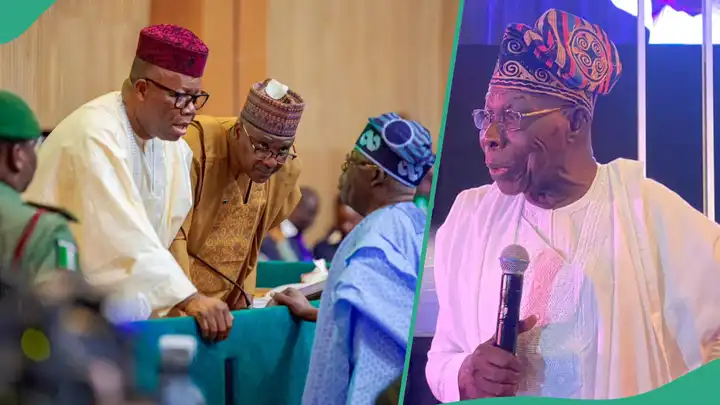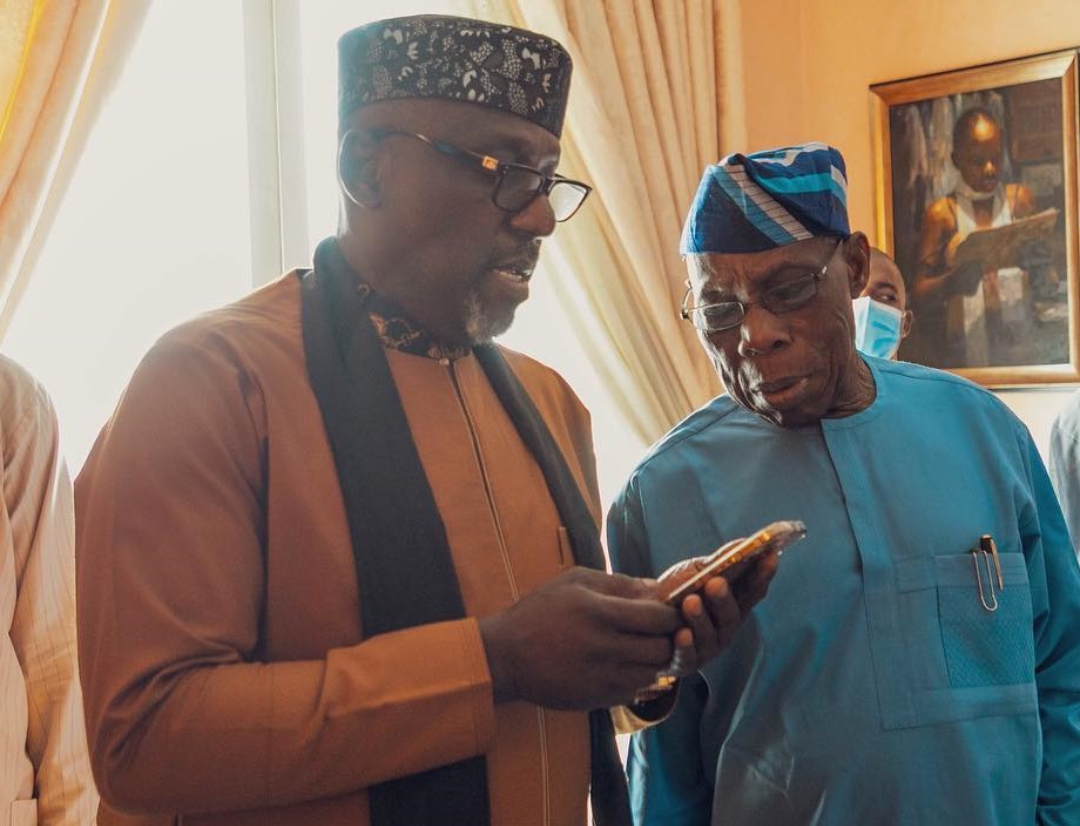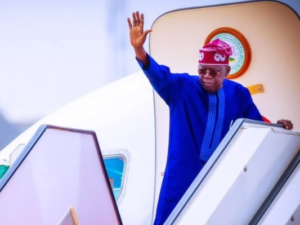You All Got N200 Million”: Obasanjo Makes Disturbing Disclosure About Nigerian Sena

“You All Got N200 Million”: Obasanjo Makes Disturbing Disclosure About Nigerian Senate

You All Got N200 Million”: Obasanjo Makes Disturbing Disclosure About Nigerian Sena
Former Nigerian President Olusegun Obasanjo has made a shocking revelation about the Nigerian Senate and House of Representatives, claiming that members of the National Assembly received a whopping N200 million each in undisclosed allowances. The startling disclosure has sparked outrage and renewed calls for transparency and accountability in the country’s legislative processes.
Obasanjo, who served as Nigeria’s President from 1999 to 2007, made the disclosure during a public event held in Lagos. He criticized the current state of governance in Nigeria and accused the National Assembly of being complicit in the mismanagement of public funds. According to Obasanjo, each senator and member of the House of Representatives was allegedly paid N200 million as part of a “special allowance” package, which he described as a gross abuse of power and public trust.
The former president, known for his outspoken nature, did not mince words as he condemned the alleged payments. He said, “It is disheartening to see that those who are supposed to be the custodians of our democracy are instead milking the nation dry. The N200 million that each of you received is a betrayal of the Nigerian people. This is not the Nigeria that we fought for.”
Obasanjo’s allegations have sent shockwaves through the country’s political landscape, with several members of the National Assembly coming under intense scrutiny. Senate President Godswill Akpabio and Speaker of the House of Representatives Tajudeen Abbas have both issued statements denying the former president’s claims, insisting that the alleged payments did not take place.
In his response, Senate President Akpabio stated, “These allegations are baseless and unfounded. The Nigerian Senate operates within the bounds of the law, and all allowances and remunerations are transparent and duly accounted for. We urge former President Obasanjo to provide concrete evidence to support his claims.”
Similarly, Speaker Abbas described Obasanjo’s disclosure as an attempt to discredit the National Assembly, asserting that the legislature remains committed to serving the interests of the Nigerian people. “We reject these accusations in the strongest terms. The House of Representatives has always acted in the best interests of our constituents, and we challenge anyone with evidence of wrongdoing to come forward,” Abbas said.
Obasanjo’s revelation has ignited widespread public outrage, with many Nigerians expressing their anger and disappointment on social media. The hashtag #N200MillionScandal quickly began trending on Twitter, with citizens demanding an investigation into the former president’s claims.
Civil society organizations have also weighed in on the matter, calling for a thorough investigation into the alleged payments. The Socio-Economic Rights and Accountability Project (SERAP), a prominent anti-corruption watchdog, has urged the Economic and Financial Crimes Commission (EFCC) to probe the matter and hold those responsible accountable.
In a statement, SERAP’s Executive Director, Adetokunbo Mumuni, said, “These allegations are too serious to be ignored. The Nigerian people deserve to know the truth, and we call on the relevant authorities to investigate this matter thoroughly. If indeed N200 million was paid to each member of the National Assembly, it constitutes a monumental breach of public trust.”
Obasanjo’s disclosure comes at a critical time for Nigeria’s political class, as the country prepares for upcoming general elections. The allegations have cast a shadow over the credibility of the National Assembly, with opposition parties seizing the opportunity to criticize the ruling All Progressives Congress (APC) and its leadership.
Atiku Abubakar, the presidential candidate of the People’s Democratic Party (PDP) in the 2023 elections, was quick to condemn the alleged payments, stating, “This is yet another example of the corruption and impunity that has plagued our government institutions. The Nigerian people deserve better, and we must continue to fight for a government that is accountable and transparent.”
Meanwhile, Bola Ahmed Tinubu, the President of Nigeria and a prominent APC leader, has called for calm and urged the public to await the outcome of any investigations. In a brief statement issued by his spokesperson, Dele Alake, Tinubu said, “The President is committed to upholding the rule of law and ensuring that all public officials are held to the highest standards of integrity. We will not tolerate any form of corruption or abuse of power.”
As the controversy continues to unfold, there are growing calls for the National Assembly to come clean about the alleged payments and provide a detailed account of all allowances and remunerations received by its members. Several prominent Nigerians, including former lawmakers and legal experts, have called for the publication of the National Assembly’s financial records to promote transparency and accountability.
Chief Afe Babalola, a respected legal luminary and former member of the National Assembly, urged his former colleagues to address the allegations head-on. “The integrity of the National Assembly is at stake. If these allegations are true, it would be a betrayal of the trust placed in us by the Nigerian people. I urge the leadership of the Senate and the House of Representatives to take this matter seriously and provide a full and transparent account of their finances,” Babalola said.
As Nigeria grapples with the implications of Obasanjo’s disclosure, the need for greater transparency and accountability in the country’s legislative processes has never been more apparent. The allegations of N200 million payments to members of the National Assembly have exposed deep-seated concerns about corruption and governance in Nigeria, and the onus is now on the relevant authorities to conduct a thorough investigation and ensure that justice is served.
Do you find Tmaq Media useful? Click here to give us five stars rating!

























